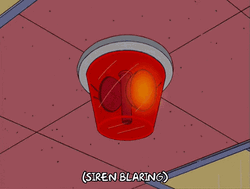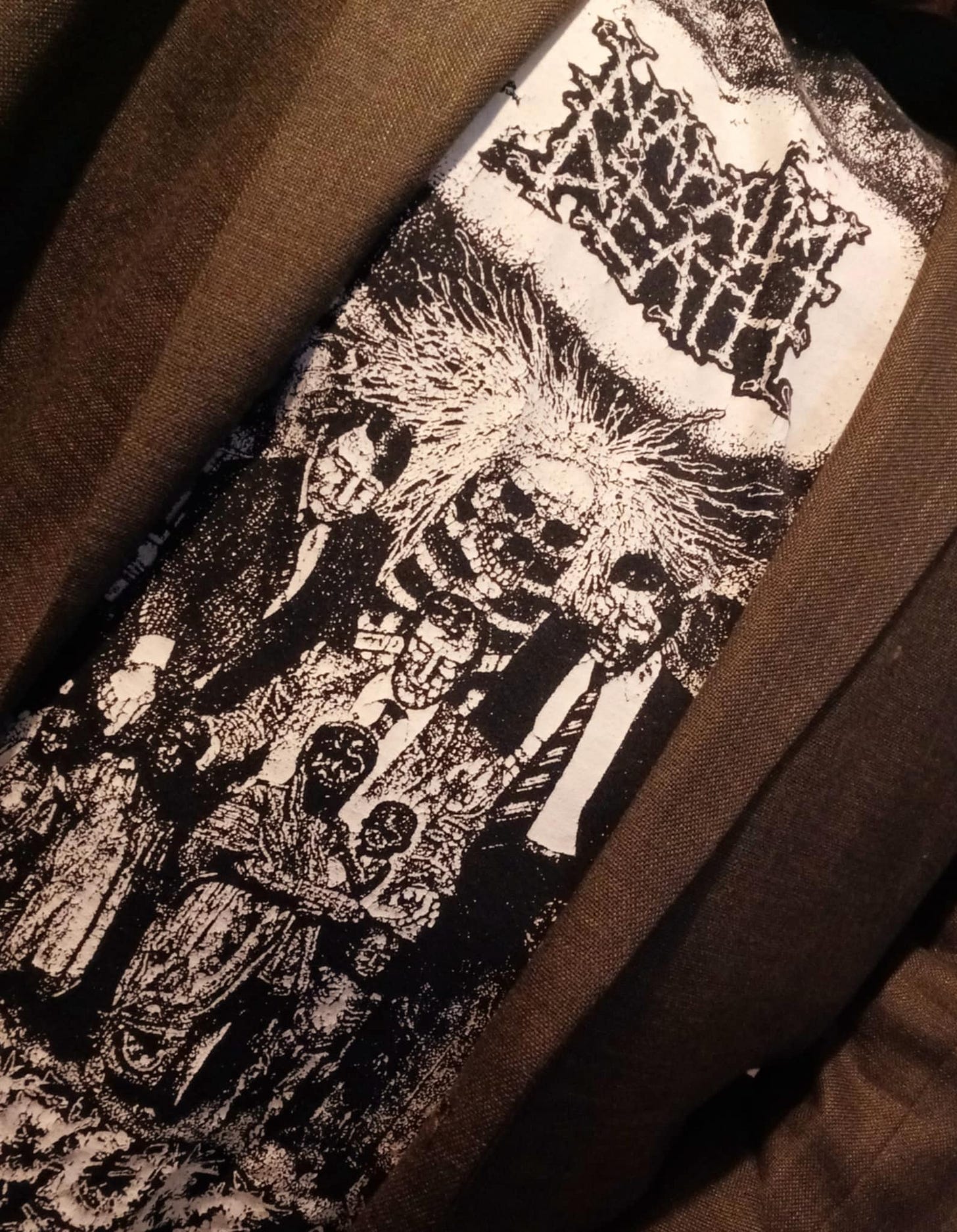Shuttin’ down, Part II: Gaslighting the truth-teller
Individualising the harms of systemic workplace dysfunction
Shortly after the TV incident I described in Shuttin’ down, shuttin’ shuttin’ down (on live TV), I received an email from the personal assistant of a very high-level university executive to request a coffee-and-chat.
The exec and I met for coffee on campus one morning, him in his business suit and I in blue jeans and a black Napalm Death t-shirt, with a sports coat as garnish. He was very kind and personable, checking in with how I was doing and taking time to ask about my work. The dude was honestly quite charming and knew how to work a conversation.
Then he asked, “What can we do, what can I do to help you out?”
I replied, “This is a toxic workplace”.
I then listed all the things that had gone wrong since the two recent restructures, from mayhem caused by the mass-firing of administrative staff and the wholesale redeployment of the remainder to different work units across the university, to the dysfunctionality of university systems, and the opaque randomness of the workload management model that bore no relation to reality of our work.
My comment about the workload management system hit him hardest; the rollout of this system was one of his pet projects. He claimed that a workload model is only as good as the data fed into it, and that this would improve with time.
I responded that the algorithm used to calculate that data would never be accurate because no algorithm or measurement exists that can accurately capture the non-linear complexity of academic labour in research and teaching.
He failed to grasp my logic, looking at me like I was some kind of moron. But he’s a slick operator, so he changed tack. “What about the new employee resilience for mental health program we’re rolling out, would that help?”
“Yeah, I guess” I replied, though by that point, having shot my shot criticising university systems, I didn’t have the heart to tell him that corporate-style workplace resilience programs that individualise responsibility for mental illness onto workers do little to ameliorate the systemic problems that make them unwell.
Two core themes run parallel through the stories of Benny Got Burnout. One is about me, my psychology and my mind state during my long descent into burnout and subsequent escape for greener, unburnt pastures. The other is the ever-present backdrop of chronic workplace dysfunction, even lunacy, an environment so toxic it scorches everyone within. Every post I share is a representation of the inter-relationship between these two themes.
Here’s the part about my nationally televised autistic shutdown that transcends me personally.
Colleagues across the university were most supportive in the wake of the interview when they could individualise my experience as something that happened exclusively to me. The underlying patronising tone of the variations of “how brave” and “poor thing” in which much of that support came wasn’t lost on me.
Colleagues were less enthusiastic about the idea that my TV shutdown might have been an emergent symptom of systemic workplace stress, because this institution was a fucking zoo, as much as it was about me.
As a blaring klaxon warning of organisational chaos, my shutdown struck a little too close to home. Easier to brush it off as my failure, my weakness, my problem.
However, another segment of colleagues was forthright in making the link. I heard it in whispered conversations standing in line for a coffee and in water cooler conversations in the common room kitchen. I heard it too from academic across the country in private emails and DM’s on Twitter.
A few weeks later, same café, similar conversation, this time with a higher-up from the Facutly, the Dean’s right-hand man.
It was more surprising to get a coffee request from this person, who’d made himself indispensable to the Dean in administering the recent restructure, as well as ramming through a number of unpopular and time-consuming organisational reform projects. I saw him as the Dean’s attack dog, the slobbering sycophant cum head-kicker.
Over coffee, he shared a little of his own struggles with anxiety and said he was inspired to touch base because of my candid article about my TV shutdown. It was a human conversation and I’m glad he reached out, but I was far from shocked. I could tell from a mile away he had baggage.
However, unlike me, he was in a position of power where he could have made an immediate, substantive positive difference to workplace systems and culture. Instead, he chose to advance his career by punching down on his colleagues.
These two men, in different ways, were responsible for administering two brutal restructures in three years. They were the architects and agents of workplace psycho-social hazard.
They pitted my colleagues and I against each other through spill-and-fill redundancies, weaponising fear for our careers to minimise our resistance.
The logic of the savings metrics they used to justify the job cuts were spurious at best, and their redundancy decisions were arbitrary and felt personal.
University admin was decimated, with years of accumulated institutional knowledge of professional staff pissed away through redundancies and redeployments.
Academics were crushed by permanently inflated workloads as we struggled to do more with less. Efficiency really meant displacing the work of those made redundant on those of us who remained.
And these motherfuckers were trying to tell us that everything was OK, that this was for the good of the university!
As I told the exec over coffee, I could not imagine a greater act of deliberate self-sabotage. As an act of bastardry designed to deliberately undermine and alienate staff it was even worse, squeezing us in a vice of stress and fear.
So, while thankful for the acknowledgement, the “allyship” these two men offered me was hollow and meaningless because of what they’d done. No-one who has been responsible for leading and/or administering an organisational restructure has the right to claim they care about workplace mental health. Not ever.
Workplaces never recover from organisational restructures. We do not forget, we do not forgive, and we have the receipts.
Reflective lesson
Burnout is emotionally exhausting. Recovery requires tapping back into those emotions to process them and set them free. That’s why I use the runes as a reflective tool. For each article Benny Got Burnout I pull a rune to help me reflect on the topic at hand from a Jungian archetypal perspective. I’ve been reading runes for nearly ten years, and the practice has brought me comfort and clarity during times of difficulty. My reflection below was developed in dialogue with The Book of Runes by Ralph Blum.
Teiwaz (reversed) – blockage, imbalance, frustration
Teiwaz is the rune of honour, justice, and disciplined self-sacrifice, however in its reversed form, it suggests that those very qualities are twisted or denied. Teiwaz reversed speaks directly to the emotional terrain of imbalance between personal need and external pressures, and the frustration of feeling trapped in patterns of dishonesty or manipulation.
The dissonance between words of support versus the actions that perpetuate harm is a form of gaslighting. This rune highlights how emotional energy is drained when recognition comes not from genuine justice but from hollow gestures, as with my anecdotes above where senior leaders praised my personal resilience but recoiled from deeper systemic truths.
Where Teiwaz upright embodies the courage of the truth-teller, its reversal reflects how systems can invert courage into weakness. A key emotional lesson is that standing in truth can be isolating, because institutions admire individual suffering more than organisational accountability. Its theme of blockage mirrors my exhaustion at seeing resilience-based mental health band-aids used to individualise my struggle instead of addressing systemic dysfunction.
Teiwaz reversed is a reminder not to squander emotional strength on leaders who are unwilling to meet truth with reciprocity and recognise when sacrifice is being exploited rather than honoured. Courage doesn’t always receive appropriate recognition from those with a vested interest in harm, and misplaced loyalty to corrupted structures only compounds burnout.






It's time the Freemasonic university system shut down anyway. It's way overpriced, administrated by bootlicking idiot husks, the professors are brainwashed and can't tolerate a student cutting to the heart of a matter or calling out bullshit.
No institution overseen by the ruling bloodlines is going to improve our species. Unconscionable how primary and secondary "teachers" tell kids that college is so important and if you don't go, you will ruin your life.
Meanwhile, tradesmen are supporting their families, building businesses, and scaling up to the kind of skrill the physicians and lawyers only *wish* they could enjoy. No wonder they speak even of the blue/white collar hybrid in disrespectful terms; a drone can only vascillate between obeying master and envying those who refuse.